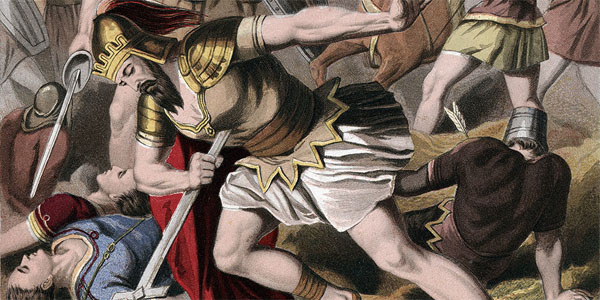1 Samuel 31:1-13 (CLICK HERE FOR BIBLE VERSES)

Hi GAMErs,
Today’s passage is 1 Samuel 31:1-13. As usual, I encourage you to open your Bible and read the passage yourself first. See what you can glean with the Holy Spirit’s help. Then read the GAME sharing below. Let’s go!
1 Samuel 31:1-7 (NIV)
1 Now the Philistines fought against Israel; the Israelites fled before them, and many fell slain on Mount Gilboa.
2 The Philistines pressed hard after Saul and his sons, and they killed his sons Jonathan, Abinadab and Malki-Shua.
3 The fighting grew fierce around Saul, and when the archers overtook him, they wounded him critically.
4 Saul said to his armor-bearer, “Draw your sword and run me through, or these uncircumcised fellows will come and run me through and abuse me.” But his armor-bearer was terrified and would not do it; so Saul took his own sword and fell on it.
5 When the armor-bearer saw that Saul was dead, he too fell on his sword and died with him.
6 So Saul and his three sons and his armor-bearer and all his men died together that same day.
7 When the Israelites along the valley and those across the Jordan saw that the Israelite army had fled and that Saul and his sons had died, they abandoned their towns and fled. And the Philistines came and occupied them.
On verses 1-7: These verses describe the tragic deaths of Saul and his sons Jonathan, Ahinadab and Malki-Shua at the hands of the Philistines. Having lost his three sons, having been critically wounded and now fearing what the Philistines would do to him if he were alive, Saul loses all hope of living and takes his own life (v4). His armor bearer does the same (v5). This then leads to all the Israelites who live in the surrounding region to flee and the Philistines take over their towns (v7).
What can we learn from this? Notice this pattern: Saul takes his life, so his armor bearer takes his life. The Israelite army flees, so the Israelite civilians also flee. Whether we intend it or not, our actions will influence those around us. You are a leader whose actions make a difference, whether you intend to be or not. We’ll see this happening in a different way in the verses that follow.
1 Samuel 31:8-13 (NIV)
8 The next day, when the Philistines came to strip the dead, they found Saul and his three sons fallen on Mount Gilboa.
9 They cut off his head and stripped off his armor, and they sent messengers throughout the land of the Philistines to proclaim the news in the temple of their idols and among their people.
10 They put his armor in the temple of the Ashtoreths and fastened his body to the wall of Beth Shan.
11 When the people of Jabesh Gilead heard of what the Philistines had done to Saul,
12 all their valiant men journeyed through the night to Beth Shan. They took down the bodies of Saul and his sons from the wall of Beth Shan and went to Jabesh, where they burned them.
13 Then they took their bones and buried them under a tamarisk tree at Jabesh, and they fasted seven days.
On verses 8-13: Saul took his own life because he didn’t want the Philistines to abuse and humiliate him. But the Philistines do it anyway. They decapitate Saul, strip off his armour, and nail his naked body as well as the bodies of his sons to the city wall of Beth Shan for all to see (v8-10). The people of Gilead Jabesh hear of what the Philistines did to the bodies of Saul and his sons. They respond by sending a team of valiant men to march all night to Beth Shan and reclaim the bodies of Saul and his sons, so as to give them a proper and honourable burial (v11). Their bodies were so mutilated that they have to burn them (v12). Then they take the bones and bury them under a tamarisk tree (v13), probably to commemorate how Saul held his court under a tamarisk tree (1 Samuel 22:6)
Why, when all of Saul’s other followers had fled, did the people of Jabesh Gilead honour Saul and his sons this way? I believe a big reason is because years earlier when Saul had not yet taken the throne, Saul rescued the town of Jabesh Gilead from the Ammonites (1 Samuel 11). Now the people of Jabesh Gilead were returning the kindness that Saul had shown them, their parents and grandparents.
What can we learn from this? Because Saul served the people of Jabesh Gilead courageously and sacrificially, the people of Jabesh Gilead served Saul courageously and sacrificially. Once again, your actions influence others. Generally speaking, how you treat others will affect how others will treat you.
Father, thank You for reminding me today that my actions affect those around me, for better or for worse, and that how I treat others will affect how others end up treating me. Because my actions matter, may I be intentional in living courageously, lovingly and wisely, so that others as well as I myself may be blessed. In Jesus’ name, AMEN!
Copyright © 2022 Justin Lim. All rights reserved.

